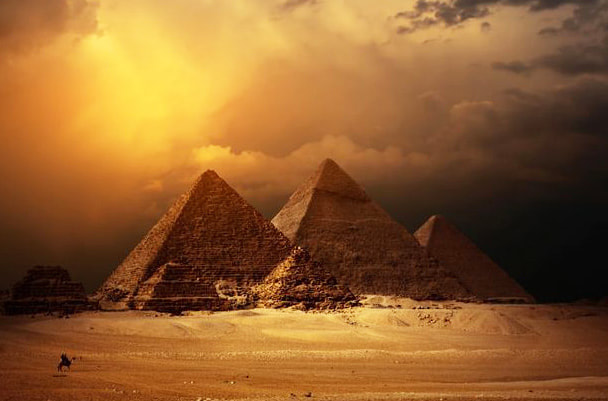“… I will make the land of Egypt a ruin and a desolate waste from Migdol to Aswan, as far as the border of Cush.” (Ezekiel 29:10).
“So the Lord will make himself known to the Egyptians, and in that day they will acknowledge the Lord. … In that day Israel will be the third, along with Egypt and Assyria, a blessing on the earth. The Lord Almighty will bless them, saying, ‘Blessed be Egypt my people, Assyria my handiwork, and Israel my inheritance.’” (Isaiah 19:21-25).
The most obvious answer to the apparent discrepancy between the two scriptures above, and others like them, is that they address different times. Ezekiel speaks to a time close to his own when Egypt would fall to outside invaders – as it soon did, in fact, to the emerging Babylonian and Persian Empires. On the other hand, Isaiah speaks to a more distant time of millennial peace when the future nation of Egypt will be blessed for its obedience.
But there is another aspect to understanding scriptures like these. Ancient Egypt is represented with a kind of “split personality” in the Bible. On the one hand it is sometimes shown quite negatively, and on the other hand it is sometimes shown in a much more positive light. Egypt and Israel shared a common border in the ancient world, just as they do today, and this fact led to a great deal of interaction between the two lands – some of which was of a negative and some a positive nature.
Many scriptures speak of the national sins of ancient Egypt (Isaiah 19:1-25, etc.), and ancient Israel was repeatedly warned not to follow its example in many things – ranging from religious customs (Ezekiel 20:8, etc.) to trusting in horses and chariots for their national protection (Isaiah 31:1, etc.). But most scriptures giving a negative view of Egypt do so by using it as a symbol of slavery and bondage, as the Bible records it had been for the Israelites.
On the other hand, although Israel left Egypt in the Exodus, the land of the Nile remained a major superpower during most of Israel’s history, and it provided shelter for a large number of individuals mentioned in the Bible. We see this even as early as the time of Abraham and Sarah who went to Egypt when conditions were difficult in the land of Canaan (Genesis 12:10-20), and we see the same thing in the life of Joseph, of course, when his brothers went to Egypt for food during a famine in Canaan. Other biblical figures such as Jeroboam fled to Egypt for political asylum (1 Kings 11:40), and later, when the nations of Israel and Judah were overthrown and taken into captivity, many individuals fled to Egypt for refuge (2 Kings 25:26) – including the prophet Jeremiah (Jeremiah 43:5-7). In the New Testament, of course, Mary and Joseph also fled to Egypt with the infant Jesus to avoid persecution by King Herod.
So throughout biblical history Egypt played two very different roles – both as a land that had held Israel in slavery, and as a land that was a safe haven for many who escaped to it. Depending on the time and circumstances, Egypt was either an adversary or an ally, a place to flee or a place to flee to.
As a land symbolizing pride and oppression as well as refuge and protection, it is understandable that some scriptures speak of punishments that would come on Egypt and others speak of rewards. The Bible shows that nations, just like individuals, are held accountable for their behavior, and so it is no contradiction that Egypt was prophesied to receive curses when it did evil and blessings when it did good.

 RSS Feed
RSS Feed
